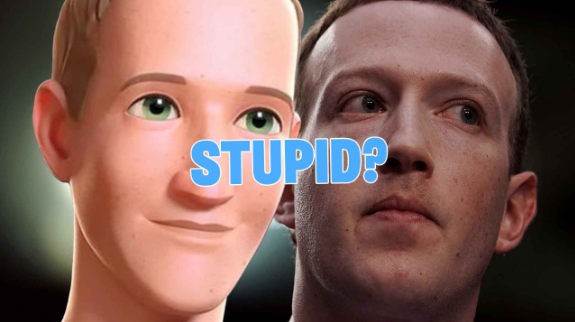The “metaverse” seems to be the latest buzzword in technology. Generally speaking, the metaverse can be seen as a form of cyberspace. Like the Internet, it is a world, or even a reality, beyond our physical world on Earth.
The difference is that the metaverse allows us to immerse a version of ourselves as avatars in its environment, usually through augmented reality (AR) or virtual reality (VR), which people can and will increasingly access using tools like VR glasses.
While it all sounds very exciting, a curious lawyer like myself is inclined to ask: who or what rules the metaverse? The way I see it, there are three key areas that are, at this stage, legally murky.
1. A market without limits
Transactions in the metaverse are generally monetized using cryptocurrencies or NFTs (non-fungible tokens). An NFT is a unique digital asset: it can be an image, a piece of music, a video, a 3D object, or another type of creative work. The NFT market is booming; in some cases, we are talking about sales equivalent to millions of pounds.
While it’s hard to say if this is simply a trend or an exciting new form of capital investment, these types of transactions raise some interesting legal questions.
For example, in the “real” world, when it comes to buying a work of art, property law dictates dual ownership. First, ownership can be attributed to the actual physical artwork. And second, the buyer may or may not own the intellectual property in the artwork, depending on the terms of the sale.
But exactly what type of property is included in a digital art transaction? The international law firm Reed Smith has said that “ownership” in the metaverse is nothing more than a form of license or provision of services. In such cases, the true ownership still rests with the owner. This may mean, for example, that the buyer cannot sell the item without the permission of the true owner.
Virtual real estate has also become NFT, with individuals and companies spending huge sums of money to own “property” in the metaverse. Do the intricacies of land law apply here? For example, will real world law cover trespassers on private land in the metaverse? Can you get a mortgage on your virtual property?
The metaverse may also be capable of hosting a virtual marketplace similar to Silk Road, which was a dark web marketplace that trafficked in illegal drugs, weapons, and supposedly “murder-for-hire.” What kind of laws can be put in place to safeguard that this doesn’t happen in the metaverse? It would be ideal to have a global regulatory authority overseeing the metaverse, although this would be difficult to implement.
2. Data
Another possible legal implication of the metaverse has to do with data and data protection. The metaverse will expose new categories of our personal data for processing. This could include facial expressions, gestures, and other types of reactions that an avatar might produce during interactions in the metaverse.
Arguably, the EU’s General Data Protection Regulation (GDPR) could apply to the metaverse, just like the UK’s Data Protection Act. But given the novel nature of the metaverse, to ensure that users’ rights are protected, the processes governing informed consent around data processing may need to be reviewed.
In addition, the “boundless” nature of the metaverse means that while we may want to assume that GDPR will apply, clauses dealing with data transfer and processing outside of the EU may need to be clarified. The GDPR applies based on the location of the subject when their data is processed, not based on their country of origin or citizenship.
So can we look at the location based on the person operating the avatar, or is it more appropriate to look at the avatar itself, since it’s the avatar data that will be processed? And if we look at the location of the avatar, how would we determine which jurisdiction the metaverse belongs to?
3. User Interactions
When users interact through their avatars, we can have situations where some kind of altercation occurs that would amount to breaking the law, if it occurred between people in the real world. Such incidents could violate tort law (which covers civil claims such as negligence or nuisance) or criminal law (which involves illegal acts and crimes such as assault, murder, robbery or rape).
Imagine that one avatar attacks another. Could we apply criminal assault and battery laws to this situation? How could we make an avatar responsible for their actions in the metaverse? This would be complicated, because it would mean that we need to attribute a legal personality to the avatar, granting it rights and duties within a legal system; allowing them to sue or be sued.
Proving assault or battery would also be much more difficult because it usually requires “actual bodily harm.” In the metaverse, naturally, there will be no actual bodily harm. It would be challenging to prove the damage, loss, or injury sustained by an avatar.
Worryingly, sexual predators are already emerging in the metaverse, masking their identity behind an avatar that cannot be easily traced back to their real-world operator. For example, we have seen incidents of groping. Users in the metaverse can wear haptic vests or other technologies that would actually allow them to feel sensations if they were touched or groped.
Sexual harassment laws do not require that physical contact constitute sexual harassment. But are existing laws adequate to deal with this issue? In the virtual reality and gaming environment, for example, who is responsible for ensuring the safety of users?
There is little doubt that sexual harassment issues will find their way into the metaverse, especially if unscrupulous users know this is a gray area. Believing that their actions cannot be proven, or that they cannot be held accountable for events taking place in the metaverse, could embolden such behavior.
This goes back to the question of legal entities for avatars: is a legal entity necessary for avatars to be responsible for their actions in the metaverse? And what kind of standards and criteria need to be in place to distinguish between a “legal” avatar and the actual legal entity that operates that avatar? All of these issues need to be addressed before the metaverse goes mainstream.












